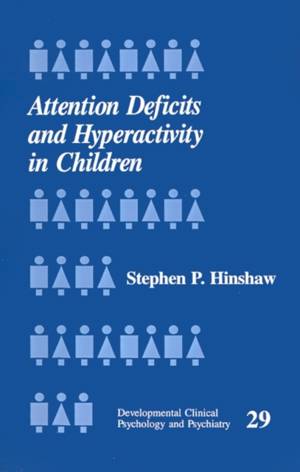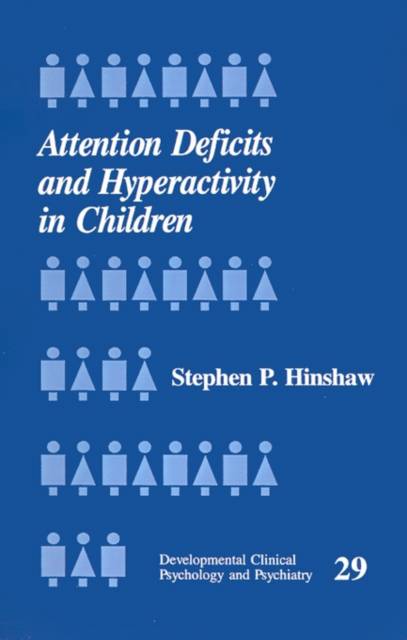
- Retrait gratuit dans votre magasin Club
- 7.000.000 titres dans notre catalogue
- Payer en toute sécurité
- Toujours un magasin près de chez vous
- Retrait gratuit dans votre magasin Club
- 7.000.0000 titres dans notre catalogue
- Payer en toute sécurité
- Toujours un magasin près de chez vous
Description
Another winner in Sage′s Developmental Clinical Psychology and Psychiatry Series, this time by a University of California, Berkeley psychologist. . . . Stephen P. Hinshaw′s chief goals are to provide adequate background information and to evaluate certain key debates and core questions that remain unacceptably answered at the present time. . . . He has managed to convey in accurate and readable fashion a remarkable amount of information in a relatively short space. Advances, challenges, and unresolved problems in diverse but relevant areas are meticulously analyzed and placed in context. As the comprehensive and well-chosen reference list bears testimony, the book is enriched by the fact that the author′s own work plays an important role in elaborating many of the key features of this still little understood but very prevalent disorder. This book will be of value to students, trainees, and professionals in both academic disciplines and more clinical areas. --Child & Family Behavior Therapy Children diagnosed with attention deficit hyperactivity disorder (ADHD) often have major difficulties with achievement in school, and they often exhibit defiance, aggression, and other antisocial behaviors. Although there is abundant literature on ADHD, misinformation abounds. Serving to synthesize findings from the vast and often confusing array of information on this subject, Attention Deficits and Hyperactivity in Children provides concrete information regarding basic clinical, conceptual, diagnostic, etiologic, and treatment-related issues on ADHD. This volume illustrates and evaluates several key debates that have confronted the field for many years: Is there a valid syndrome characterized by attention deficits and/or hyperactivity? What tools can assessors use to gain optimal information about the disorder? Has the field achieved consensus with respect to the nature or underlying mechanisms of the behavioral difficulties these children display? Which factors predict subsequent functioning in adolescence and adulthood? Due to the great diversity of characteristics and causal influences related to ADHD, the author considers many perspectives including clinical, developmental, psychodiagnostic, psychobiologic, environmental/familial, and social cognitive viewpoints.
Spécifications
Parties prenantes
- Auteur(s) :
- Editeur:
Contenu
- Nombre de pages :
- 161
- Langue:
- Anglais
- Collection :
- Tome:
- n° 29
Caractéristiques
- EAN:
- 9780803951969
- Date de parution :
- 01-01-94
- Format:
- Livre broché
- Format numérique:
- Trade paperback (VS)
- Dimensions :
- 141 mm x 220 mm
- Poids :
- 222 g

Les avis
Nous publions uniquement les avis qui respectent les conditions requises. Consultez nos conditions pour les avis.






